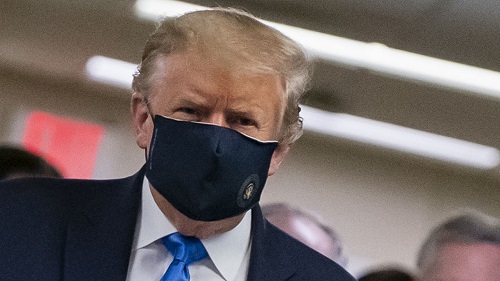This post has already been read 1868 times!
The United States on Monday said it had approved a $2.4 billion sale of 100 Harpoon coastal defense systems to Taiwan, defying Beijing’s anger over a $1 billion missile deal last week.
The announcement came just hours after Beijing said it would sanction US firms involved in an earlier arms sales to the democratic self-ruled island.
The proposed sale of the Harpoon systems “will help improve the security of the recipient and assist in maintaining political stability, military balance… and progress in the region,” the State Department said in a statement.
The deal involves 100 Harpoon Coastal Defense Systems (HCDS), which includes 400 RGM-84L-4 Harpoon Block II surface-launched missiles with a range of around 78 miles (125 kilometers).
The office of Taiwan’s President Tsai Ing-wen released a statement thanking the United States for the sale, saying it would “upgrade asymmetric warfare capabilities.”
Democratic and self-ruled Taiwan lives under constant threat of invasion by authoritarian China, whose leaders view the island as part of their territory.
They have vowed to one day seize Taiwan, by force if necessary.
Chinese fighter jets and bombers have entered Taiwan’s air defense zone with unprecedented frequency in recent months, while propaganda films have shown simulated attacks on Taiwan-like territories and US bases in Guam.
Beijing said Tuesday it “firmly opposed” such moves, urging the US to “call off the relevant arms sales plan to Taiwan, so as not to cause further damage to China-US relations and peace and stability across the Taiwan Strait”.
Foreign ministry spokesman Wang Wenbin said China would “take proper and necessary measures to firmly safeguard its national sovereignty and security interests.”
– ‘Strategic ambiguity’ –
Washington diplomatically recognizes Beijing over Taipei but it is also bound by an act of Congress to sell Taiwan weapons to defend itself.
But it maintains that any change to Taiwan’s future status must not be done by force.
Taiwan’s military is dwarfed by China’s People’s Liberation Army and much of its equipment, including its fleet of fighter jets, is aging.
Recent US administrations were wary of big-ticket arms sales to Taiwan for fear of provoking Beijing.
But US President Donald Trump has been much less squeamish, signing off on multiple sales worth billions in recent years, as he clashes with China on a host of issues.
Last Wednesday, the US said it had approved the $1 billion sale of 135 precision-guided, air-launched AGM-84H SLAM-ER cruise missiles — which unlike the Harpoon have a range greater than the width of the Taiwan Strait that separates the island from mainland China.
Chinese foreign ministry spokesman Zhao Lijian said the sanctions were “to safeguard national interests” and would apply to those who have “behaved badly in the process of arms sales to Taiwan.”
Zhao did not give further details on how the sanctions would work.



